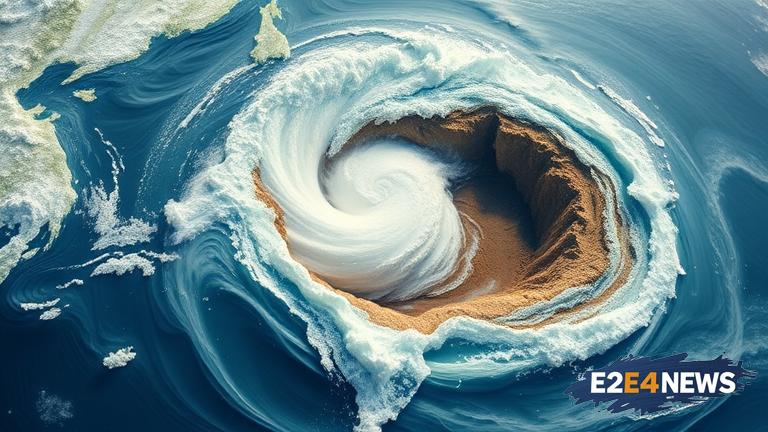A massive 8.8 magnitude earthquake struck off the coast of Kamchatka, Russia, on July 30, 2025, triggering a series of tsunamis that affected several countries across the Pacific. The earthquake, which occurred at a depth of approximately 10 kilometers, was felt as far away as Japan, the Philippines, and Hawaii. The Pacific Tsunami Warning Center issued a tsunami warning for several countries, including Japan, Russia, and the Philippines, after the earthquake struck. In Japan, the Tokyo Electric Power Company (TEPCO) evacuated workers from the Fukushima Daiichi nuclear plant as a precautionary measure. The plant, which was damaged in a 2011 earthquake and tsunami, is still in the process of being decommissioned. The Japanese government also issued a tsunami warning for several coastal areas, including the Fukushima prefecture. In Russia, the earthquake caused widespread damage and power outages in the Kamchatka region. The Russian Emergency Ministry reported that several buildings were damaged and at least one person was injured. The earthquake also triggered a tsunami warning for the Kuril Islands, which are located off the coast of Kamchatka. In the Philippines, the earthquake was felt in several areas, including the capital city of Manila. The Philippine Institute of Volcanology and Seismology reported that the earthquake caused minor damage and no casualties. The earthquake also triggered a tsunami warning for several coastal areas in the Philippines. In Hawaii, the earthquake was felt on several islands, including Oahu and Maui. The Pacific Tsunami Warning Center reported that a small tsunami wave was detected in Hawaii, but no damage or casualties were reported. The earthquake was also felt in other countries, including Taiwan and Guam. The United States Geological Survey (USGS) reported that the earthquake was a megathrust earthquake, which occurs when one tectonic plate is forced beneath another. The USGS also reported that the earthquake was likely to have triggered aftershocks in the coming days and weeks. The earthquake has raised concerns about the safety of nuclear power plants in the region, particularly the Fukushima Daiichi plant. The plant has been the subject of controversy in recent years due to concerns about its safety and the risk of radioactive leaks. The Japanese government has pledged to increase safety measures at the plant and to accelerate its decommissioning process. The earthquake has also highlighted the importance of disaster preparedness and response in the region. The Pacific Tsunami Warning Center has urged countries to review their tsunami evacuation plans and to conduct regular drills to ensure that people are prepared in the event of a tsunami. The earthquake has also raised concerns about the impact of climate change on the frequency and severity of natural disasters. Scientists have warned that climate change could increase the risk of earthquakes and tsunamis in the coming years, and have urged governments to take action to reduce greenhouse gas emissions and to prepare for the impacts of climate change.
